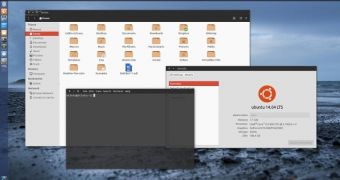A security problem discovered in the Linux kernel affecting the Ubuntu 14.04 LTS, Ubuntu 13.10, Ubuntu 12.10, Ubuntu 12.04 LTS, and Ubuntu 10.04 LTS operating systems has been fixed by Canonical.
Every now and then, Canonical issues Linux kernel updates for all the operating systems that are being supported at that time. In this case, there are five distributions that have received this new upgrade, but it's interesting to note that not all the OSes share the same kernel, which means that it was a problem common to all, regardless of the version.
“A flaw was discovered in the Linux kernel's pseudo tty (pty) device. An unprivileged user could exploit this flaw to cause a denial of service (system crash) or potentially gain administrator privileges,” reads the official security notification.
The security flaw can be fixed if you upgrade your system(s) to the linux-image-3.13.0-24-generic, (3.13.0-24.47), but this is only true for Ubuntu 14.04 LTS (Trusty Tahr). Other operating systems feature different Linux kernels and the versions will be different.
Upgrading the Linux kernel is not something to be taken lightly. Most of the time, some important fixes are implemented with new versions of the kernel and users should upgrade as soon as possible. Ubuntu operating systems will usually notify users about any updates that need to be applied.
There is one caveat though. It's possible to have some problems after the restart if you previously installed the video drivers manually. For example, the NVIDIA proprietary driver registers the specific modules during the installation, but you may need to re-register those modules again if the system is not booting anymore.
This is just the first Linux kernel update for Ubuntu 14.04 LTS (Trusty Tahr) and it arrives only three weeks after the official launch. Canonical has pledged to support the operating system until 2019, which means that, if you stick with this distribution, you might be the beneficiary of countless similar updates.
Don't forget to reboot your computer after the upgrade, and be careful. Make sure you save any work you're doing before hitting that button.
ATTENTION: Due to an unavoidable ABI change, the kernel packages have a new version number, which will force you to reinstall and recompile all third-party kernel modules you might have installed. Moreover, if you use the linux-restricted-modules package, you have to update it as well to get modules that work with the new Linux kernel version.

 14 DAY TRIAL //
14 DAY TRIAL //